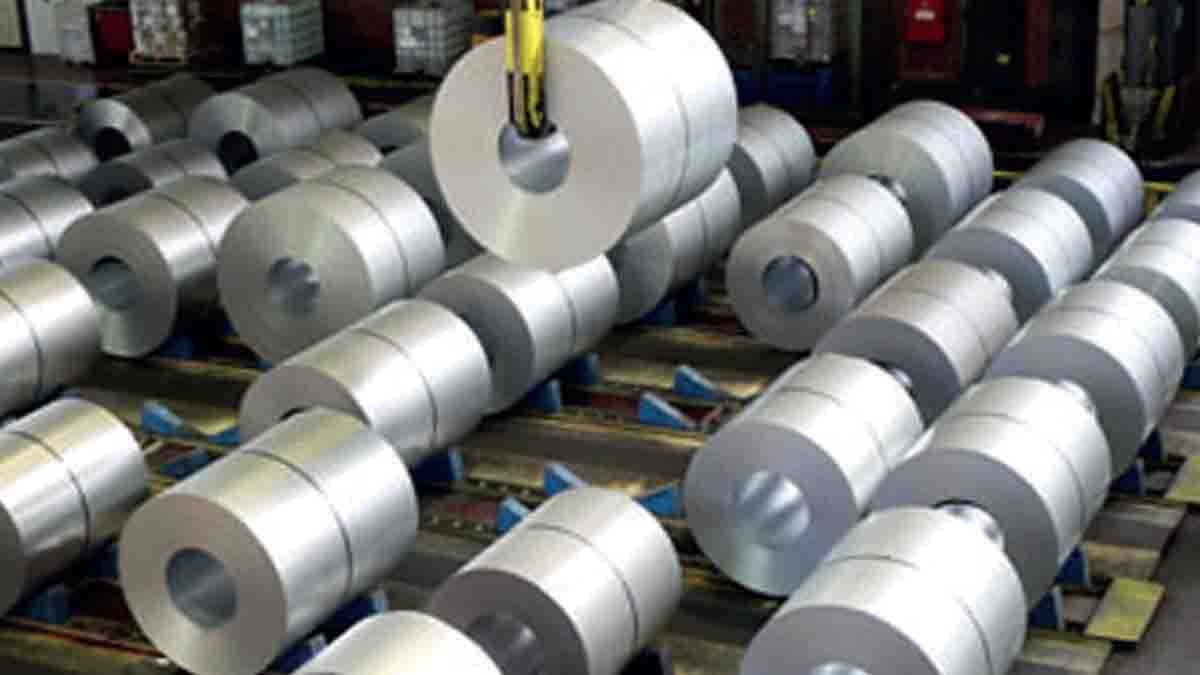Are you interested in working in the steel/iron ore industries, which offer some high-paying jobs? Then this article is for you.
The steel demand is expected to rise as there is a push for urbanization, and the industry will benefit from strong domestic demand.
In this article, we will be discussing the best jobs in the steel and iron ore industries that pay the highest salaries and provide tips on mining.
Is Mining a Good Career Option?
Mining Engineering is one of the oldest engineering disciplines.
It focuses on the technology and processes used to identify and extract minerals from the earth.
Mining engineers are those who specialize in this form of engineering.
Their job is to mine minerals from the ground using the most advanced scientific methods.
Mining engineers are also in charge of overseeing the progress of the mines as they are being developed.
They are also responsible for ensuring the safety of the mines and the surrounding surroundings.
More so, the greatest method to build your reputation in the mining sector is to get involved in the day-to-day mining activities.
Read more:
- Is Gold Chains a Good Career Path? (FAQs)
- Is Computer Communications Equipment a Good Career Path? (FAQs)
- Is Forest Products a Good Career Path? (FAQs)
Best Paying Jobs in Steel/Iron Ore:
Below are the highest-paying positions in the steel and iron ore industries that you might pursue if you are interested in a career.
Be sure to conduct your research on them before deciding which one is best for you because they all come with their own unique set of benefits and difficulties.
If you find the right job, you could have a long and successful career in this fast-growing economic sector.
Now that we’ve reached this point, let’s look at some of the highest-paying positions in the steel and iron ore industries.
Moreover, how many different kinds of jobs are there in the steel and iron ore industries?
1. Structural Iron Worker:
As part of the construction industry, structural iron and steel workers build frameworks from various steel components, including girders and columns.
In addition, they may erect prefabricated metal structures and set up the cranes and derricks used to transport supplies and equipment around the jobsite.
This compensation range for a structural iron worker is considered moderate, which suggests that the pay for this role will remain stable regardless of the individual’s skill level, location, or several years of experience; yet, there is room for some advancement.
As one of best-paying jobs in Steel/Iron ore, most structural iron workers’ annual wages in the United States currently range between $40,500 – $47,500.
2. Structural Steel Fitter:
A structural fitter is a metalworker who makes construction materials for projects such as tall skyscrapers and container ships.
The job market for structural steel fitters in the United States is pretty active, even though only a few companies are hiring.
Most structural steel fitters’ salaries in the United States range from $36,500 to $47,000 per year.
3. Steel Erectors:
Steel erectors construct the metal framework of new buildings and structures by assembling steel girders, pipes, and beams.
As a steel erector, you would adhere to architects’ and engineers’ meticulously crafted plans.
Steel erectors typically work on constructing, installing, repairing, and maintaining steel buildings and other structures.
As a steel erector, you install panels, scaffolding, and other similar fixtures.
The worker specializing in steel erection collaborates closely with the foreman and the engineers on each project.
Working on structures and buildings with many levels and at great heights is a common job.
4. Structural Installers:
A structural installer is a type of metalworker specializing in producing building materials for many construction projects, including container ships and tall structures.
Your tasks and responsibilities include planning and assembling the components that make up a structure.
You can weld the pieces together to ensure the components are aligned perfectly or use other tools, such as jack bars, turnbuckles, hammers, or grinders.
5. Jobs as an Instructor:
To begin with, to identify the jobs that pay the most, you need to be willing to look a little bit outside the box.
An instructor in the steel and iron ore industry offers knowledge of the industry’s working principles to those willing to learn.
These sets of instructors can operate independently and are often hired by steel and iron ore companies to teach newly recruited employees about the steel and iron ore business.
Read more:
- Is packaged foods a good career path? (FAQs)
- Is Agricultural Chemicals a good career path? (FAQs)
- 13+ Best paying jobs in Real Estate Investment Trusts (FAQs)
6. The Manager of Operations:
As the manager of operations of a steel or iron ore factory, you would be responsible for overseeing the day-to-day business operations of the facility.
This would comprise actions like coordinating production, managing the workers, and ensuring that all safety criteria are met.
This could be the ideal profession if you are good at leading others and keeping things organized.
7. Maintenance Supervisors:
A Maintenance Supervisor coordinates the installation, maintenance, and repair of buildings and huge complexes.
They oversee teams of workers who execute tasks according to the specifications of their projects.
If you are in charge of maintenance in a steel or iron ore factory, one of your primary responsibilities would be to guarantee that all machinery and equipment are in proper working order.
As one of the best paying jobs in Steel/Iron ore, the average yearly salary for a maintenance manager is $82,000.
8. Metallurgists:
Metallurgists investigate the properties of metals and apply their knowledge to practical uses, such as metal manufacturing.
They operate with copper, precious metals, iron, steel, zinc, and aluminum alloys, among other metals.
The steel and iron ore industries offer a metallurgist a salary of $80,000 a year on average.
As a metallurgist, you would be responsible for conducting research and analyzing various metals.
9. Mine Supervisor:
Mining supervisors are in charge of mining and quarrying operations.
They work directly with miners in underground and surface mines and quarries to oversee and coordinate their work.
In your role as mine supervisor, you would oversee the daily operations of an iron ore mine.
This could be the ideal profession if you are good at leading others and keeping things organized.
As one of the best-paying jobs in Steel/Iron ore, the steel, and iron ore industries pay a salary of $78,000 per year to the mining supervisor of each mine.
10. Iron Technician:
An iron technician is consistently ranked as one of the positions with the best pay in the steel and iron ore industry.
If you want to be a good team leader and foster a healthy atmosphere at work, you need to be able to read and write effectively.
You need to be aware of the variations in all aspects and be familiar with high-pressure components.
To be qualified for this role, you need to have a minimum qualification of a high school diploma, and you also need to provide a pleasant environment for employees to work in.
Read more:
- 5 Careers That Pay 10k a Month (FAQs)
- 5 Easiest Vet Schools to Get Into (FAQs, Tips)
- Is the Oil and Gas Industry a Good Career Path? (FAQs)
11. Plant Supervisor:
Plant supervisors are in charge of making sure everything runs smoothly in a plant.
This includes managing employees, meeting goals, and ensuring high quality.
A job as a plant supervisor could be right for you if you like working in a plant and have a good head for running a business.
As a plant supervisor, supervising the daily operations of a steel or iron ore factory would fall on your shoulders.
This would include things like the coordination of production, the establishment of safety procedures, and the supervision of employees.
As one of the best-paying jobs in Steel/Iron ore, the steel and iron ore industries each offer a salary of $74,000 to the plant supervisor of each facility.
What are the Entry-Level Jobs in Steel/Iron Ore?
Below are some of the jobs in the steel/iron ore industry that require little to zero work experience as well as education:
1. Wireline operator:
Wireline operators make sure that other professionals at iron mines are fully equipped to effectively deliver their tasks.
They perform maintenance operations on wireline devices, inform their supervisors of any fault a wireline tool develops, and prepare strings for wireline tools.
The average annual income of a wireline operator is about $40,000.
2. Miner:
Miners search for iron ore and prepare it for their safe movement to industrial plants. They work either at underground or open-cut locations.
These professionals possess the technical know-how for extracting iron ore from rocks using explosives.
Miners help in the development of gateways for the safe movement of equipment, vehicles, and all manner of apparatus needed for the mining operation.
The average annual income of a miner is about $90,000.
3. Truck driver:
A truck driver in the steel/ore industry is an individual who transports mined ore and finished products from one place to another using trucks.
They ensure that they don’t break transportation rules when driving and ensure that goods get to their final destinations in good condition.
This job attracts an average annual income of about $80,000.
4. Driller helper:
Driller helpers help the main crew in drilling iron ore. They assist other professionals on-site to effectively carry out the drilling process.
In some work environments, they are responsible for executing simple maintenance operations.
This entry-level work in the steel/iron ore industry attracts an average annual income of about $56,000.
Frequently Asked Questions on the Best Paying Jobs in Steel/Iron Ore:
Magnetite, titanomagnetite, massive hematite, and pisolitic ironstone deposits.
Gold can be found in ores such as calaverite, sylvanite, nagyagite, petzite, and krennerite in addition to being found alone or alloyed with mercury or silver. The majority of gold ore presently originates from open pit or underground mines.
Underground mines are built in regions where ore reserves seem promising. Deposits of iron ore may be located deep within the earth. There must be an elevator or hoist installed for the shaft to be dug. More so, people and ore are carried into and out of the mine mostly by way of the shaft.
Yes, it is.
The iron-making process
Primary steel making
Secondary steel making
Casting
First forming
The manufacturing, fabrication, and finishing process.
Conclusion:
Those interested in pursuing a career in this line of work can take advantage of the fact that it is currently seeing robust growth by applying for one of the many high-paying opportunities currently available.
We have covered some of the highest-paying occupations that can be found in this sector; therefore, you must conduct adequate research before settling on a career path.
You have the potential to have a long and successful career in this dynamic industry if you find the right position for yourself.
Awesome one; I hope this article answers your question.
Editor’s Recommendations:
- How to Become a Model in India (FAQs)
- 4 Best Countries For Software Engineers (FAQs)
- Is Commercial Banking a Good Career Path? (FAQs)
- Is Home Furnishing A Good Career Path? (FAQs)
- Is Office Equipment Supplies Services a Good Career Path (FAQs)
- 5 Payday Loans That Accept Chime (FAQs)
If you find this article good, please share it with a friend.




